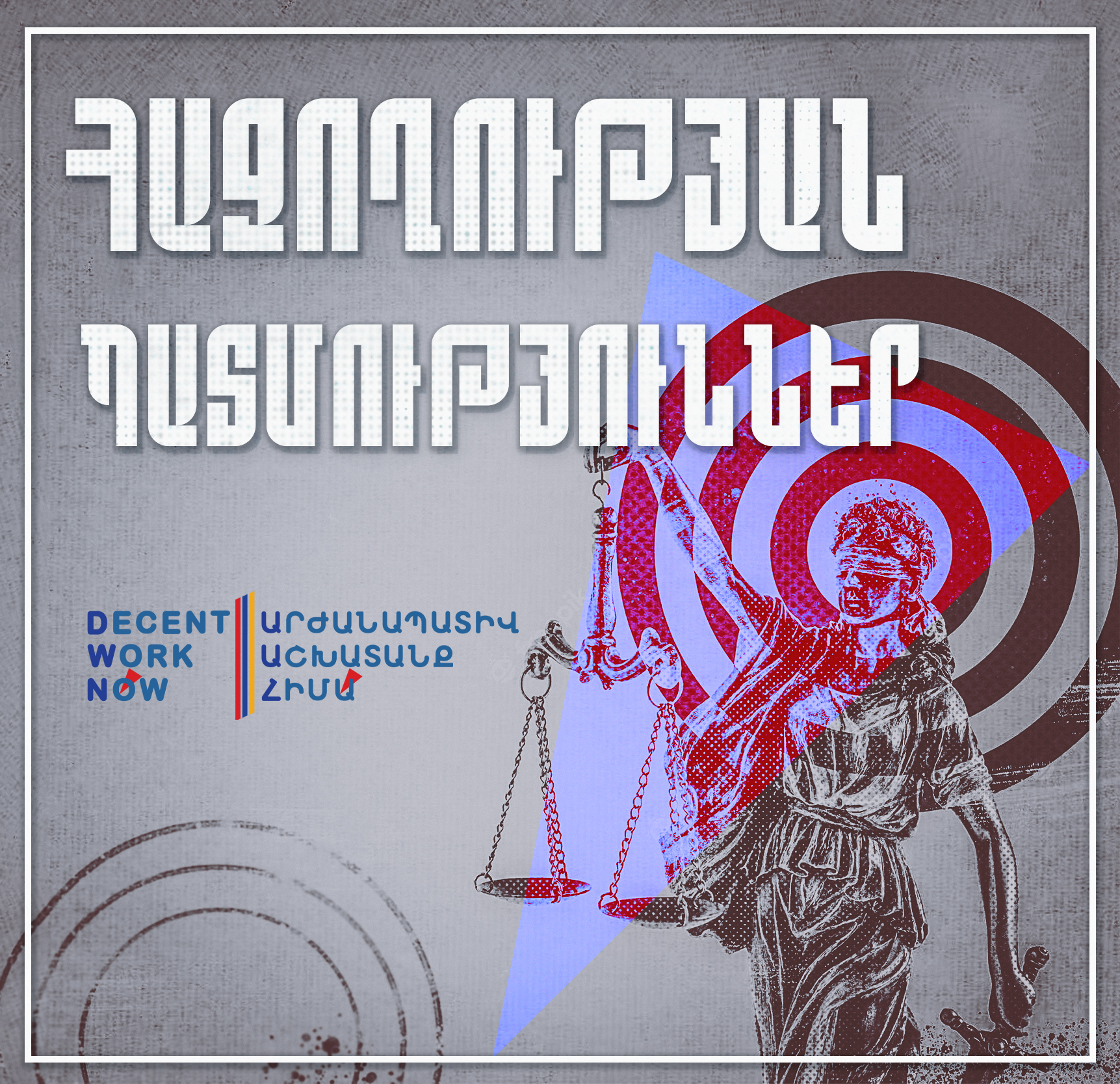




“The case of Maralik” started in the RA court: the labor right violated for political views

«Մարալիկի գործ» | Labor Rights | Activities | Legal Support | Legal Support | Success stories | Publications | State Institutions | Strategic Trials | Activities of Local Self-Government Bodies
Due to the legal support provided in the frame of “Decent Work Now” project, not only final success results are recorded, but also solutions are given to procedural issues emerging during protection of rights.
J.A., A.H., and G.A. (hereinafter referred to as “applicants”) applied to HCAV to get legal support in the frame of the project. They were dismissed as a result of a manifestation of discrimination based on their political views, the employer did not extend the terms of their fixed-term employment contract and terminated the employment based on expiry of the contract, unlike other employees of the same institution. Noteworthy, non-extension and termination of the employment contract preceded local government elections in that community. The study of the applicants’ employment contracts showed that the employer was supposed to conclude an indefinite-term employment contract with them based on the grounds established in the Labor Code. Instead, the employer concluded a fixed-term contract and regularly extended it. In such a case, according to the regulations established by the Labor Code, a fixed-term employment contract is considered an indefinite-term employment contract, and therefore cannot be terminated based on expiry.
Undertaking to protect the applicants’ rights, HCAV lodged one joint application with the General Jurisdiction Court of First Instance, claiming to recognize the applicants’ employment contracts as indefinite-term employment contracts, recognize invalid the unlawful decision of the head of the institution regarding dismissing the applicants, reinstate the applicants in their former positions, and pay for the whole period of enforced idleness. The claim also presented the factual and legal grounds of the manifestation of the institution’s discriminatory attitude towards the applicants.
The Court returned the application, reasoning that “while the plaintiffs addressed their claims against the same legal person (the employer), the plaintiffs’ claims are not interconnected. The condition that the head of the institution issued several orders on the same day to dismiss several employees is not grounds to consider interconnected the employees’ claims to recognize the orders invalid”. In this case, the Court factually did not assess interconnectedness of the claims and complete substantive interconnectedness of legal relations, and narrowly interpreting the legislative regulations, restricted the applicants’ right to judicial protection and access to court as safeguarded by the RA Constitution and the European Convention for the Protection of Human Rights and Fundamental Freedoms.
HCAV appealed the Court’s decision on returning the claim. As a result, by its decision of 08.06.2023, the Civil Court of Appeal abolished the aforementioned decision, stating that “at the stage of taking the claim into proceedings, the factual data at hand was prima facie enough for the Court to come to the conclusion that the claims were interconnected, the substance of the legal relations coincided․․․”. The Appeal Court considers the basis and substantiations of the appeal grounded, while considering groundless the conclusions of the General Jurisdiction Court.
Based on the aforementioned, the Appeal Court found that the General Jurisdiction Court unduly restricted the plaintiffs’ right to fair trial, i.e., the right to access to court, as safeguarded by the RA Constitution and the European Convention for the Protection of Human Rights and Fundamental Freedoms.
The aforementioned decision of the Appeal Court is an important achievement, in particular, in terms of labor disputes. As a result of the Court’s decision to return the claim, we face the issue of expiry of the statute of limitations. After this decision, the Court expected the applicant to separate the claims and lodge them separately. In this case, we could encounter a procedural issue, as expiry of the two-month period set for appealing the order through separated claims could compromise the opportunity to protect the employees’ rights in court. Therefore, particularly when labor dispute civil cases are lodged by co-plaintiffs, the Court should conduct a full and comprehensive examination and assessment of the factual circumstances and interconnectedness of the claims in order to avoid undue and groundless restrictions of employees’ right to judicial protection.









Leave a Reply